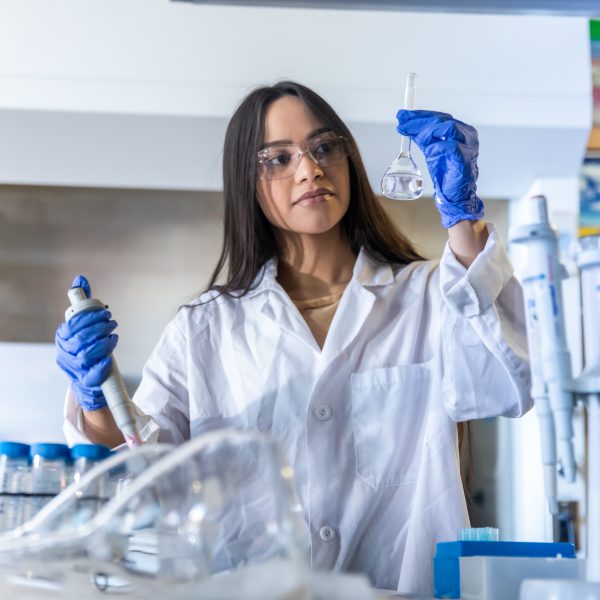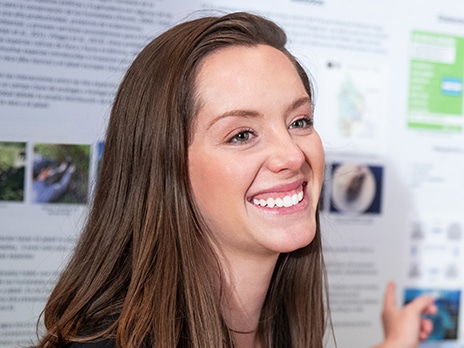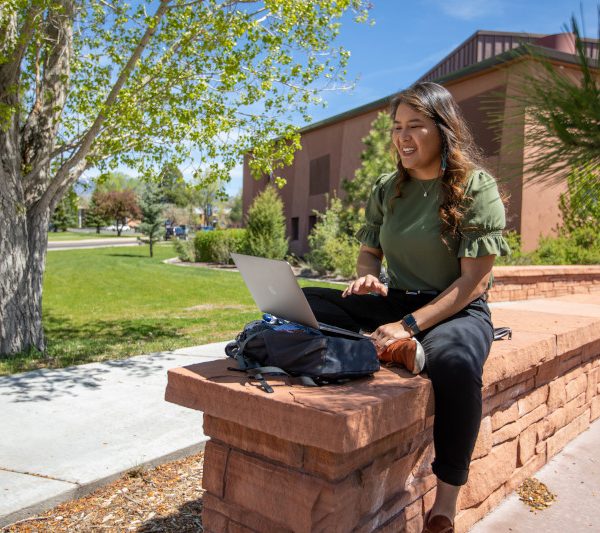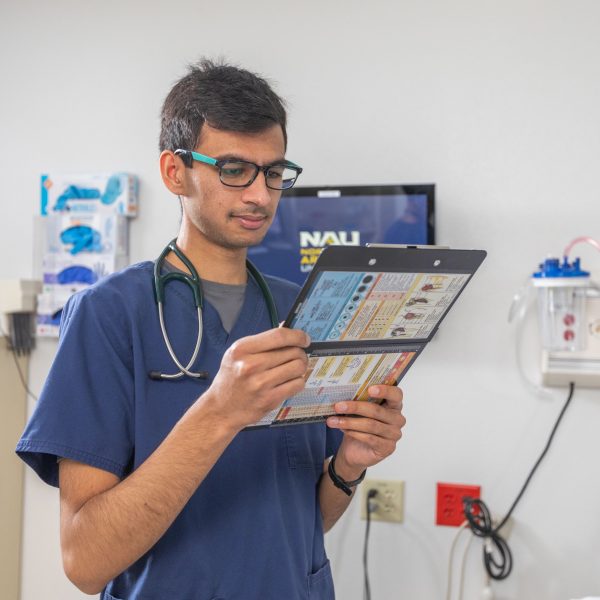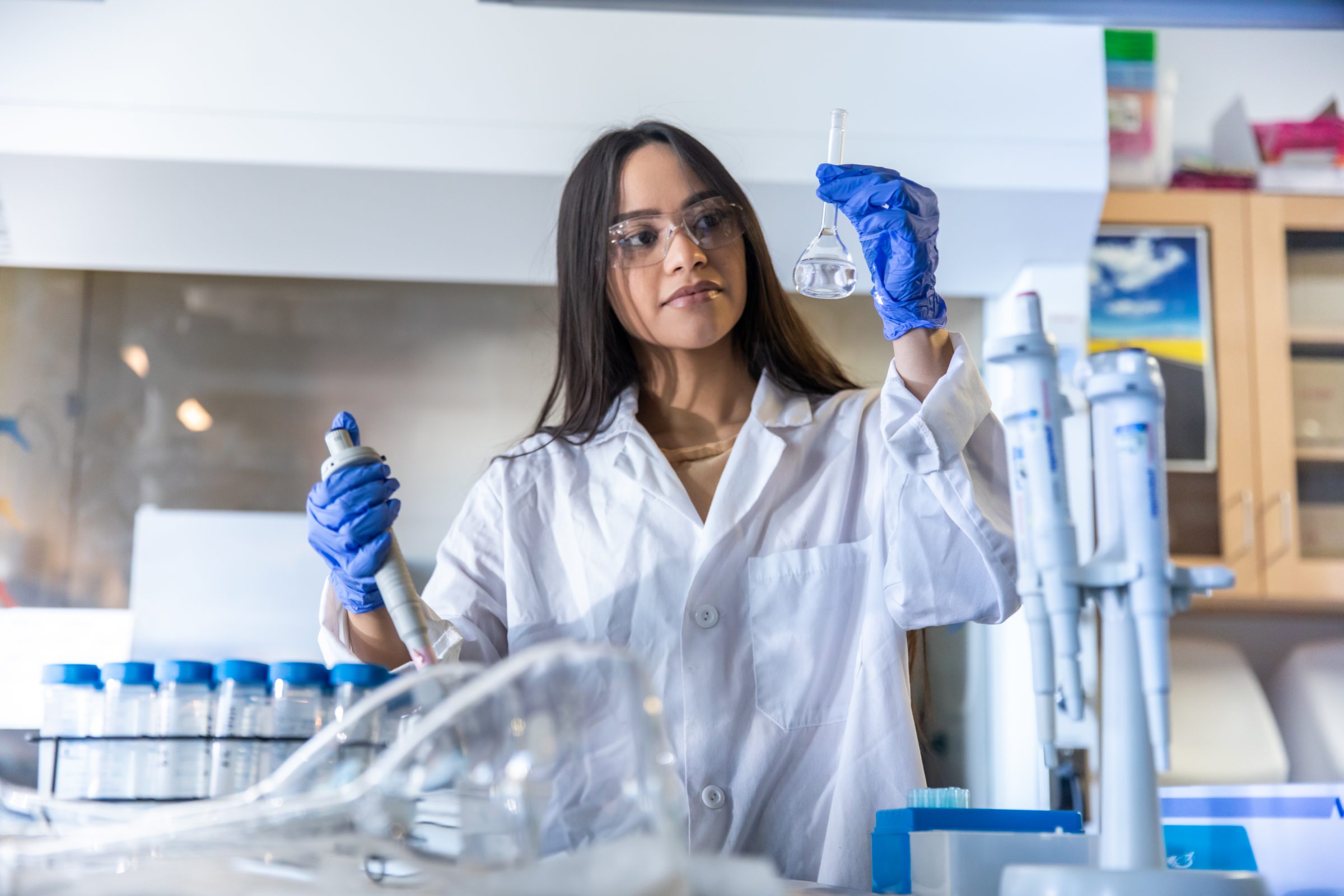
Branching out, first-generation student Mitzzy Lopez loves life in the lab where she combines chemistry and justice.
Mitzzy Lopez didn’t know what to expect when she arrived at Northern Arizona University as a freshman.
She had only been to Flagstaff once; that was on her campus visit. And her hometown of Tucson—where she didn’t start to learn English until she entered kindergarten—seemed much farther than a few hours of interstate highway.
Two years later, the Chemistry major is thriving:
- Serving as a teaching assistant in Professor of Chemistry Brandon Cruickshank’s class.
- Hiking for hours on the Navajo Nation to take soil, water, and plant samples as part of Professor Jani Ingram’s National Cancer Institute-funded Partnership for Native American Cancer Prevention project.
- Giving back as a mentor in the Louis Stokes Alliance for Minority Participation (LSAMP) program that encourages minority STEM students after being a mentee herself.
All of these opportunities have shown the first-generation college student that it pays to get uncomfortable.
“I was used to knowing so many people, and then walking into a class where you don’t know anyone is kind of scary,” Mitzzy said. “But I have been doing really well. As I’m getting all this experience being a TA and doing research, and now becoming a mentor, I just feel like I’m opening up and doing a lot of things that I didn’t know I was going to be doing.”
Her pursuit of a Social Science Forensics Minor and a Criminology/Criminal Justice Minor demonstrates her desire to use scientific skills in the service of justice.
“Finding answers is basically the whole goal of working in a crime lab,” she said. “I’m really interested in making sure that the right perpetrators are sentenced for their crime. Forensic science is expanding and helping exonerate innocent people and put the correct people in jail for whatever crimes they committed.”
Though analytical chemistry is not forensic science, working in Ingram’s lab will help Mitzzy reach her aspiration since the premise of analytical chemistry is to find the composition of something, whether it is uranium contaminating the water supply or blood or sweat offering an incriminating DNA sequence at a crime scene.
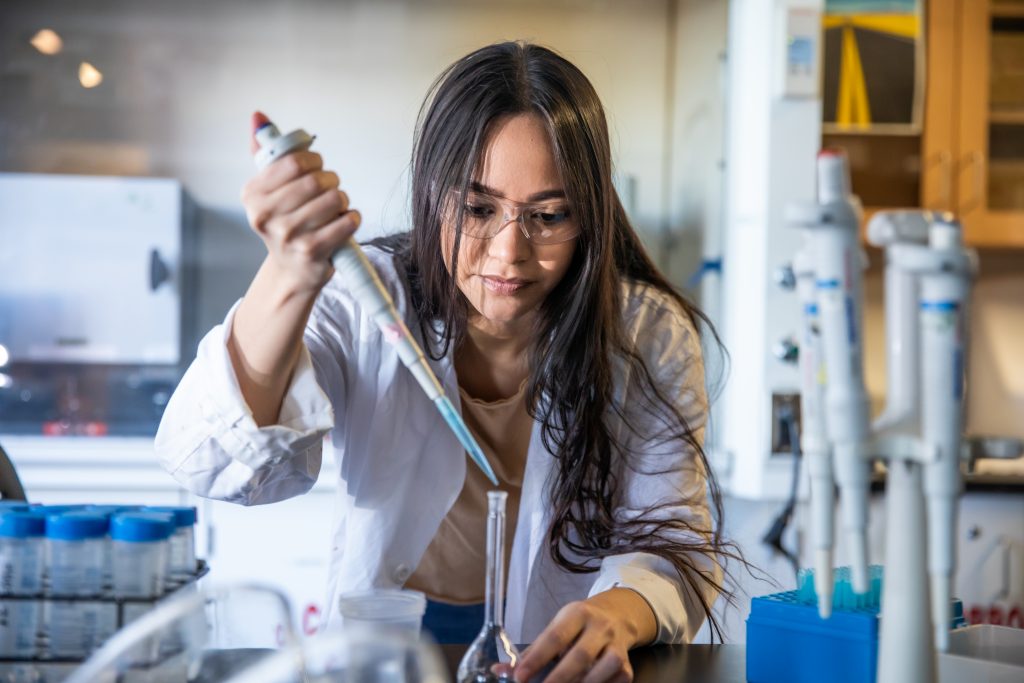
“Analytical chemistry is the specific kind of chemistry that is typically helpful in these fields,” Mitzzy said. “Let’s say we find a water sample on the reservation and people are drinking from the well. Analytical chemistry works to find all the components of water. Specifically what we’re doing in the Ingram research lab is looking for uranium in the water, because uranium is very dangerous to consume and there’s a lot of uranium mines around this reservation.”
While Mitzzy liked chemistry in high school and loved the copper panels, skyway, and stark jagged lines of the Science and Health Building where the Chemistry Department is housed, she still had reservations about life in the lab.
“I decided to do research with Dr. Ingram because I wanted to make sure that working in the lab was something that I enjoyed doing,” Mitzzy said. “It’s been really interesting learning all the procedures that are done in that lab. That’s been really fun. I love working in a lab!”

